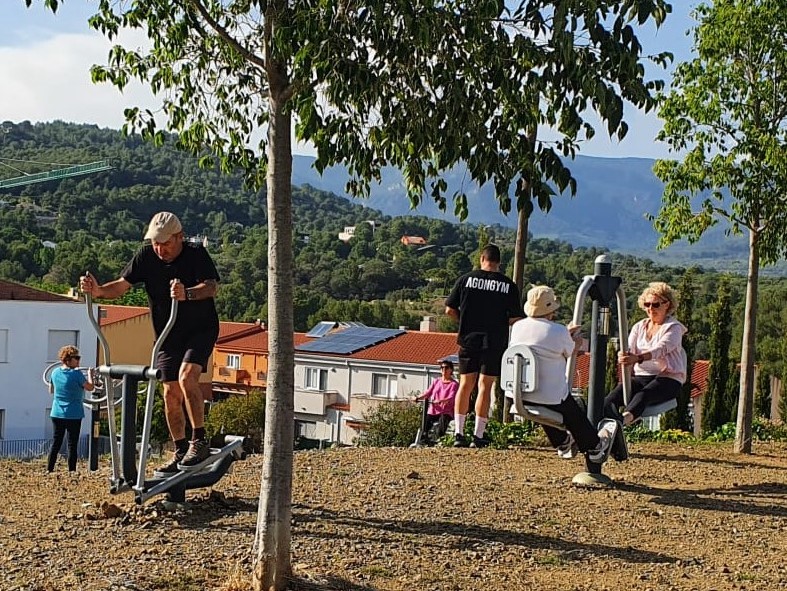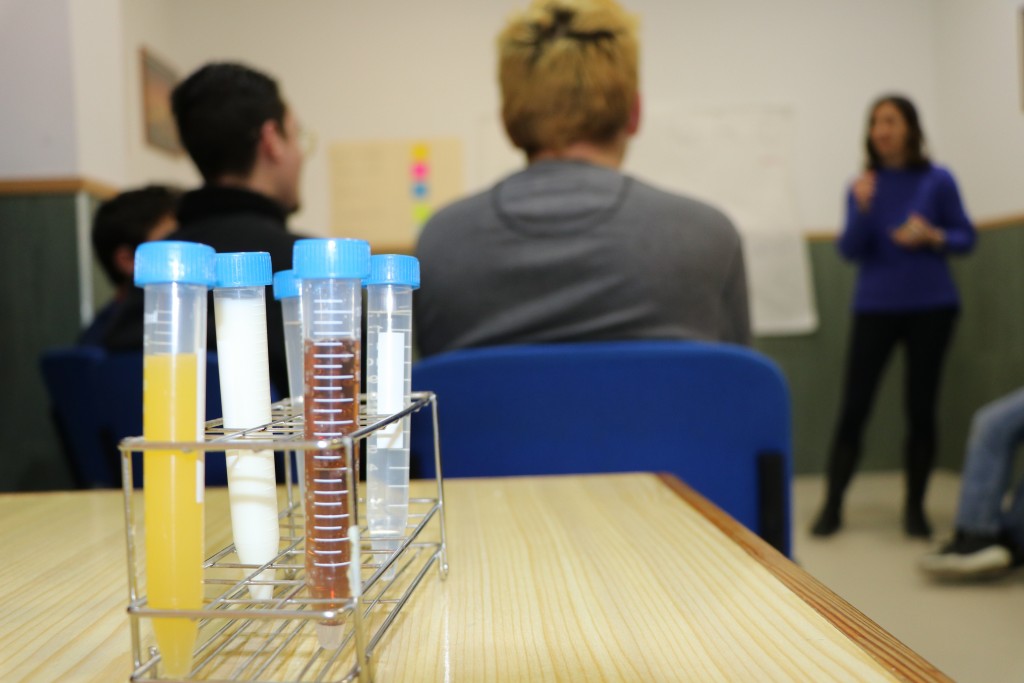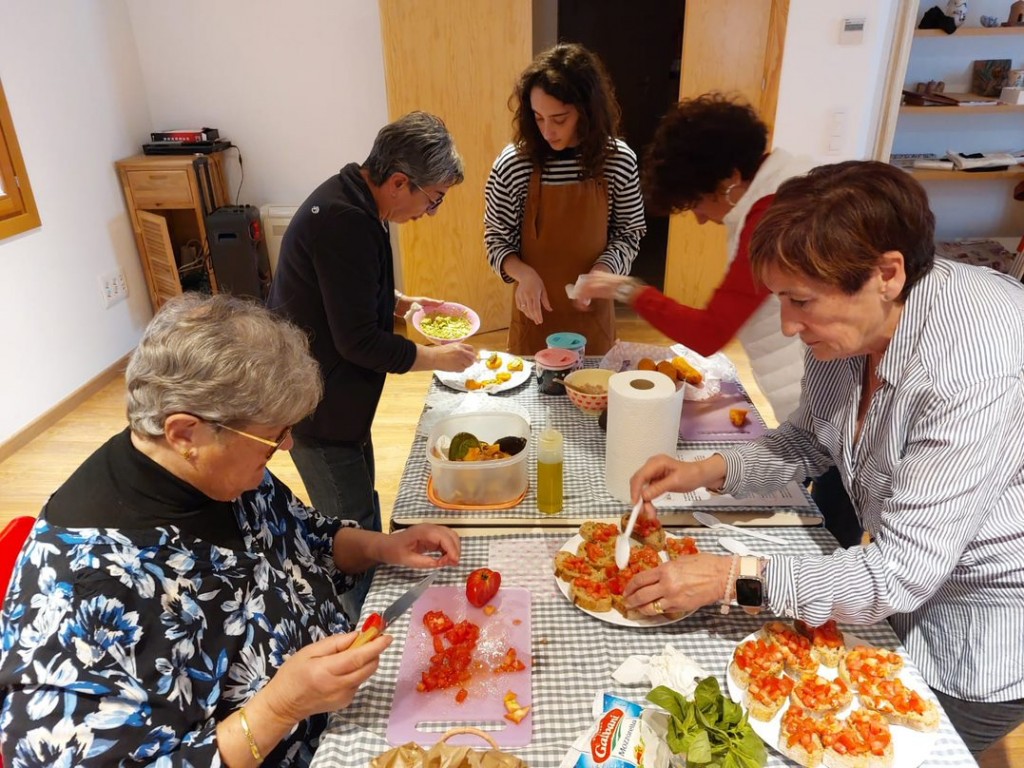Press notes 08/07/2024
Five URV research projects have been awarded a prize by the Board of Trustees for their social impact
The five projects focus on improving the lifestyle of the young elderly, overcoming social exclusion through education, creating polymers that help reduce waste production, studying the consequences of femicides on the victims' sons and daughters and designing a nutritional support programme for people with dementia

The five projects focus on improving the lifestyle of the young elderly, overcoming social exclusion through education, creating polymers that help reduce waste production, studying the consequences of femicides on the victims' sons and daughters and designing a nutritional support programme for people with dementia
The Joan Pedrerol Gallego Prize for the social impact of research, awarded by the URV’s Board of Trustees, is given to the best research projects at the URV that attempt to integrate social impact in the various stages of the scientific process. Now in their eighth edition, on 2 July the awards were given to five award-winning projects from three major areas of knowledge in two categories: ex-post (completed projects with clear evidence of social impact) and ex-ante (ongoing projects with a prediction of the expected social impact).
Social sciences and humanities
In the social sciences and humanities, the ex-post award has been given to “Overcoming social exclusion with educational success”, a project by the Social Impact and Education research group (IMSE). This research group in the field of Pedagogy has been developing and implementing educational activities in Camp de Tarragona for 13 years to improve the academic results of children and adolescents and their respect for others.
More specifically, with the Mediterranean Primary/Secondary School, in the Campclar district of Tarragona, they have worked to attend to training needs, and monitor and evaluate social impact. CRAE Codina in Reus also Works on the same issues and since 2022 they have been working with the City’s Environmental Education Plan to offer additional learning activities outside school hours in secondary schools, just as was done in Tarragona in 2017.

In the ex-ante category, a group of lecturers from the departments of Anthropology, Philosophy and Social Work, Public Law and Private, Procedural and Financial Law, have been given the prize for the project “Needs and rights of the children of femicide: A transdisciplinary approach to the consequences of gender violence in the context of the Covid-19 pandemic”. The project is now under way. It analyses the effect femicide has on the needs and rights of children and family members, highlights the virtually unknown situations of injustice and inequality that they experience and encourages debate on the co-creation of comprehensive intervention strategies that take them into account and seek to avoid revictimization.
The project is expected to contribute to the design of more committed and less discriminatory policies and interventions for the protection and care of child victims of femicide; increase the understanding and skills of the agents involved in dealing with the problem; and, in the long term, bring about a change in the culture that sustains male violence and power relations.
Experimental sciences, engineering and architecture
In the ex-post category in the field of experimental sciences, engineering and architecture, the research group Functional and Smart Materials – Epoxy Thermostable Polymers (FUNCMAT-POLTEPO) won the prize for the project “The polymers of the future are already a reality: vitrimers, recyclable, reusable, self-repairing polymers with excellent thermo-mechanical properties”. The researchers report the development of new thermostable polymer materials based on adaptable covalent networks, which are fully recyclable and repairable, for applications in the optical industry. They are used as structural adhesives and composite materials with carbon fibre, which have good thermomechanical properties and respect the concept of the circular economy.
Unlike current materials, the covalent networks developed by the URV research group help to reduce the production of waste and its impact on the environment, and to minimise the use of fossil and natural resources. The use of these polyurethane-based materials is now being analysed by companies in the aeronautics and wind turbine sector.
Health and life sciences
In the ex-post category, the research group NFOC-Salut won the prize in the Health and Life Sciences category for the project “Creativity and leadership to improve the lifestyles of the young elderly”. The study used a participatory research process to focus on people between 60 and 75 years of age (known as the young elderly) and analysed the effects of the intervention that aimed to improve lifestyles and, in turn, the parameters of sarcopenia, a progressive and generalised disease of the skeletal muscle that decreases muscle strength. The process of co-creating an intervention to improve lifestyles was undertaken in fourteen towns in the Tarragona region with fewer than 2,000 inhabitants, and the results were applied in the same places.

The results show the benefit of using a participatory science methodology to involve the participants by making them an active part in the research and the improvement of their lifestyles. The intervention improved the parameters of sarcopenia and the quality of life, and was essential to the prevention of sarcopenia and dependency.
In the ex-ante category, the winning project was “Implementation and monitoring of a nutritional and lifestyle support programme for the better health and well-being of people with dementia and caregivers”, by the research group Nutrition and Metabolic Health (NuMeH). This programme has three levels: assessment of nutritional status and identification of points for improvement; a qualitative programme adapted to the cognitive state of the patients; a qualitative programme with general and personalised activities for caregivers.
The project assumes that the approach to patients with cognitive impairment and dementia has been little studied in the therapeutic treatment of this type of patient, in which cognitive stimulation and mobility are the main targets. Likewise, caregiver programmes mainly focus on psychological support and, to a lesser extent, on postural strategies to avoid injuries during manipulations.
The NuMeH research group has already begun work on the BeHFoD study which, in addition to nutritional benefits, seeks to empower people through patient-centred care strategies, especially in the initial phases of the disease when the cognitive state allows. At the same time, for care givers the prioritization of group activities such as workshops or informative talks, in addition to individualized monitoring, is expected to have a positive impact on their emotional balance and the social isolation they often suffer.
